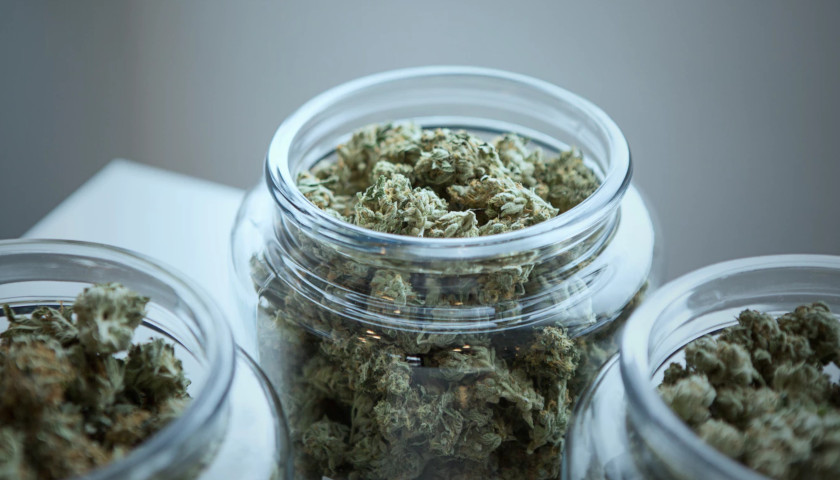It’s not quite a nonpartisan issue, but Virginia legislators expect an effort to legalize marijuana will receive enough bipartisan support to pass in the 2021 regular session. The biggest hurdle to the plan is the massive legislative changes that are required. Legislators have to choose how the cannabis business will interact with many sectors of business and government including banking, law enforcement, the Department of Motor Vehicles, the Department of Taxation, and the Alcoholic Beverage Control Authority.
“It’s a big deal, and there’s a ton of components for it, you could make an argument for it that it needs to go to every single standing committee, because it impacts every single one of those topics,” Delegate Chris Hurst (D-Montgomery) said on Friday on The John Fredericks Radio Show.
Hurst said, “What may ultimately the pump brakes on it is not necessarily anybody’s desire not to try and work toward it. What I think will just slow progress is that we want to get it right.”
In the 2020 session, the General Assembly decriminalized pot possession, but did not fully legalize marijuana. Instead, the decriminalizing bills instructed the Joint Legislative Audit and Review Commission to review how best to legalize marijuana. The report found that in addition to decisions about legal amounts, legal ages, and driving regulations, developing a commercial market requires issuing five types of operations licenses.
The review said, “The General Assembly could authorize the development of a statewide market for commercial adult use marijuana sales. Virginia would need to issue licenses for five types of major business operations that comprise the marijuana industry: cultivation, processing, distribution, retail sales, and testing.”
Because of this, advocate Senator Adam Ebbin (D-Alexandria) told The Virginia Star that legalization bills might be split up, with one legislative package focused on regulation, and the other focused on criminal aspects. But he emphasized that legislators are still working out individual details. Ebbin was the chief patron of SB2, the 2020 decriminalization bill in the Senate.
Legislators also have to protect marijuana entrepreneurs, who have difficulty accessing banking and insurance, because the drug is still outlawed by the federal government.
Hurst said one critical consideration is, “How do we set up a market that is also in tune, and with an eye toward, what the federal government is doing, wanting to make sure that no unintended consequences creep up?”
“I think what we do, and I don’t know enough about it yet, is have a safe harbor provision in our banking laws,” Ebbin said.
Legislators are essentially creating an entire industry from scratch, a process that takes time.
“Even though the bill may pass this year, you’re not going to see it flip a switch and then see it turn on July 1 or something,” Ebbin said.
“I’m hopeful it will happen in this General Assembly session, but I’m confident that it will happen within the next few sessions,” he said.
If it doesn’t pass in the next session, and if Republicans regain some political control of Virginia in the 2021 election, Ebbin said the effort might still succeed in a Republican General Assembly.
“It would be harder if the political control flipped,” he said. “I wouldn’t call it non-partisan. I would say that I believe we can get some bipartisan support.”
Ebbin said his constituents are enthusiastic about legalization, which has received support from Governor Ralph Northam (D) and Richmond Mayor Levar Stoney (D).
In August, Stoney sent a letter to the General Assembly asking them to legalize marijuana. “Not only do marijuana arrests comprise a majority of the total arrests in Virginia, but out of those arrests a disproportionate number are of Black people.”
Stoney called for funds from a marijuana tax to be used to fund a program for low-income students.
Ebbin and Hurst expect to see bipartisan support for the legislation. In 2020, Senate Minority Leader Thomas Norment (R-James City), Senator Siobhan Dunnavant (R-Henrico), and Senator William Stanley (R-Pittsylvania County) joined Ebbin as patrons of the decriminalization bill.
But not all Republicans are comfortable with legalizing pot, and neither are all Democrats.
In January, Senator Chap Petersen (D-Fairfax) said on The John Fredericks Radio Show, “I’m opposed to legalization of marijuana; I don’t think the government ought to be in the business of buying and selling a narcotic. I realize that may be a fuddy-duddy opinion, but that is where I stand and I’ve got lots of reasons for saying that.”
Petersen said, “I just look at the opioid issues and all the people that have become addicted. And people that say that marijuana is not addictive, sorry. I’ve been to parents groups of people that have children that have been drug-addicted; they all pretty much all started smoking pot. And so look, I understand I’m probably in the minority and I’m 51 years old, and you know I’ve got kids that may not agree with me. But as long as I’m the senator, I’m going to do what I think is right.”
Senator Emmett Hanger (R-Augusta) was pressed for time on Friday, but he told The Star, “It is a terrible idea to make an illegal activity legal in an effort to deal with disparities in enforcement. Bad!”
– – –
Eric Burk is a reporter at The Virginia Star and the Star News Digital Network. Email tips to [email protected].
John Fredericks is the publisher and editor-in-chief of The Virginia Star.
He is also a Trump 2020 delegate and the chairman of the Trump Virginia Delegation.




